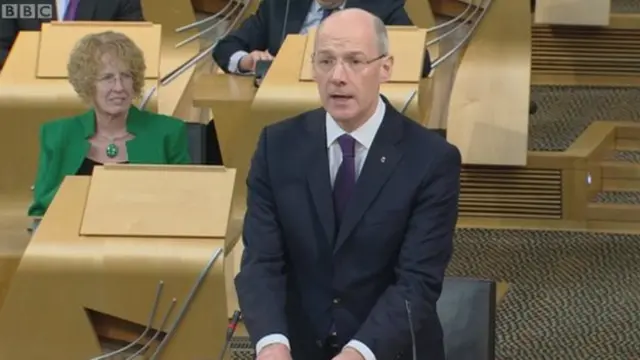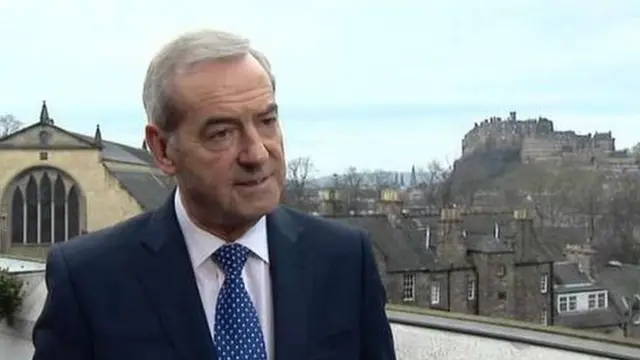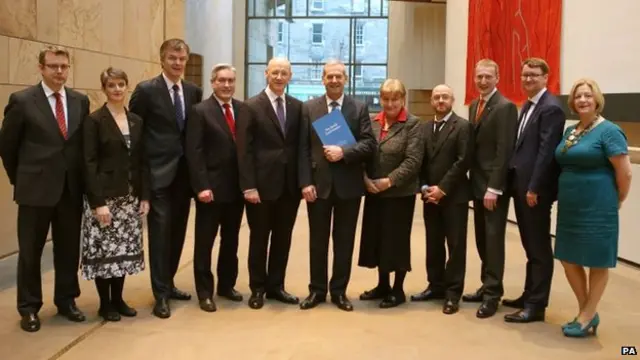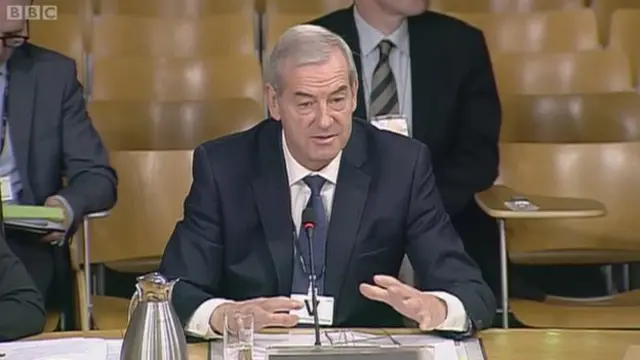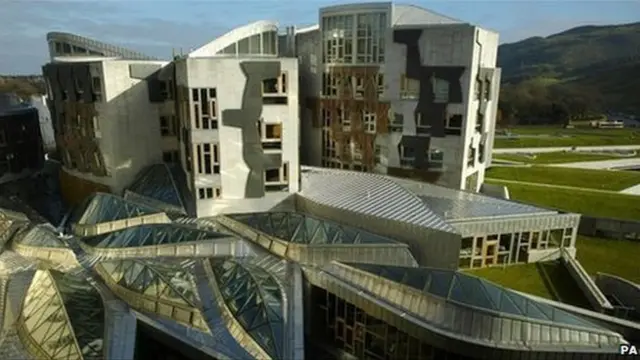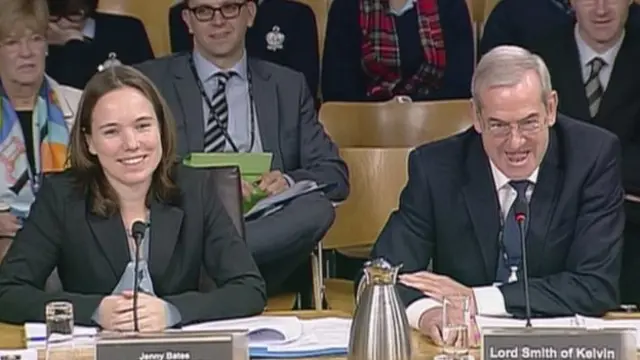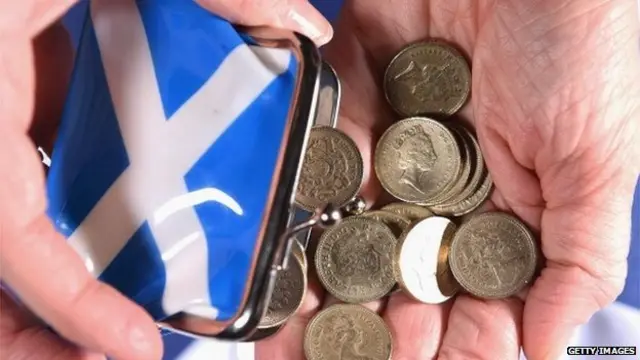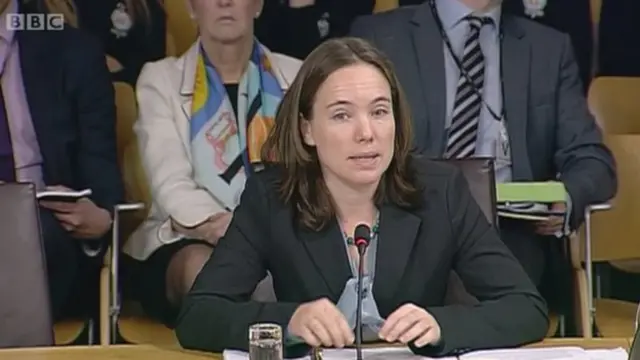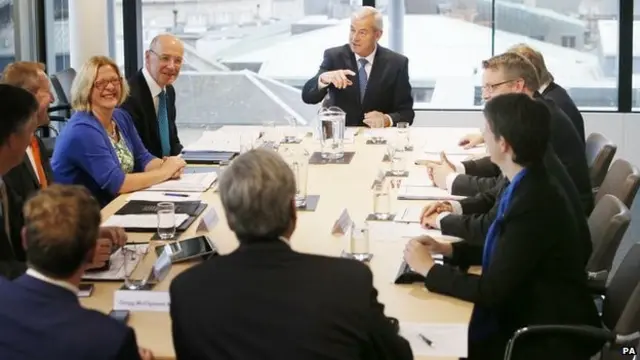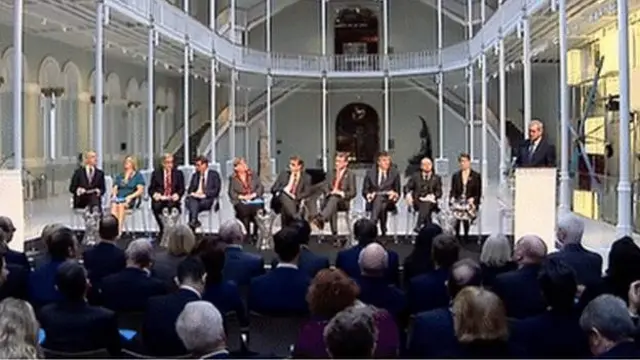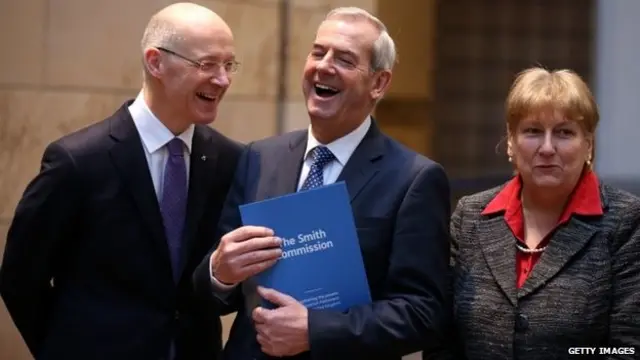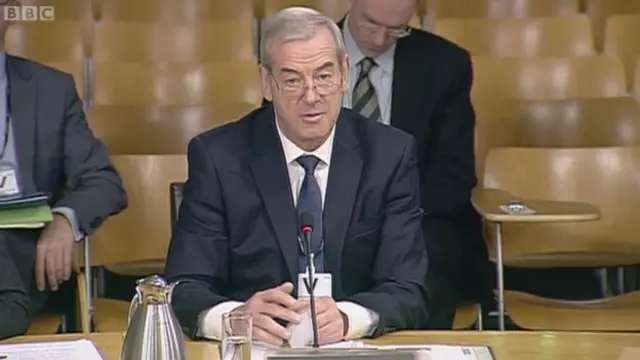16 and 17 year olds votingpublished at 14:14 GMT 2 December 2014
The deputy first minister criticises the "bedroom tax" saying it shows that a "one size fits all basis" ignores the reality of the circumstances here in Scotland.
Mr Swinney says he is "particularly pleased" at the early action to extend the electoral franchise for 16/17 year olds for the 2016 Holyrood elections.
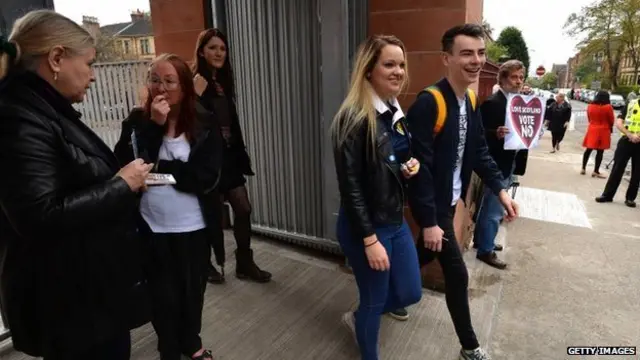 Image source, Getty Images
Image source, Getty ImagesYoung voters leaving a polling station
The government wants to make rapid progress in implementing these recommendations, he says.
The deputy first minister says the participation of 16 and 17 year olds in the referendum was a "model of democratic participation and democratic engagement".
